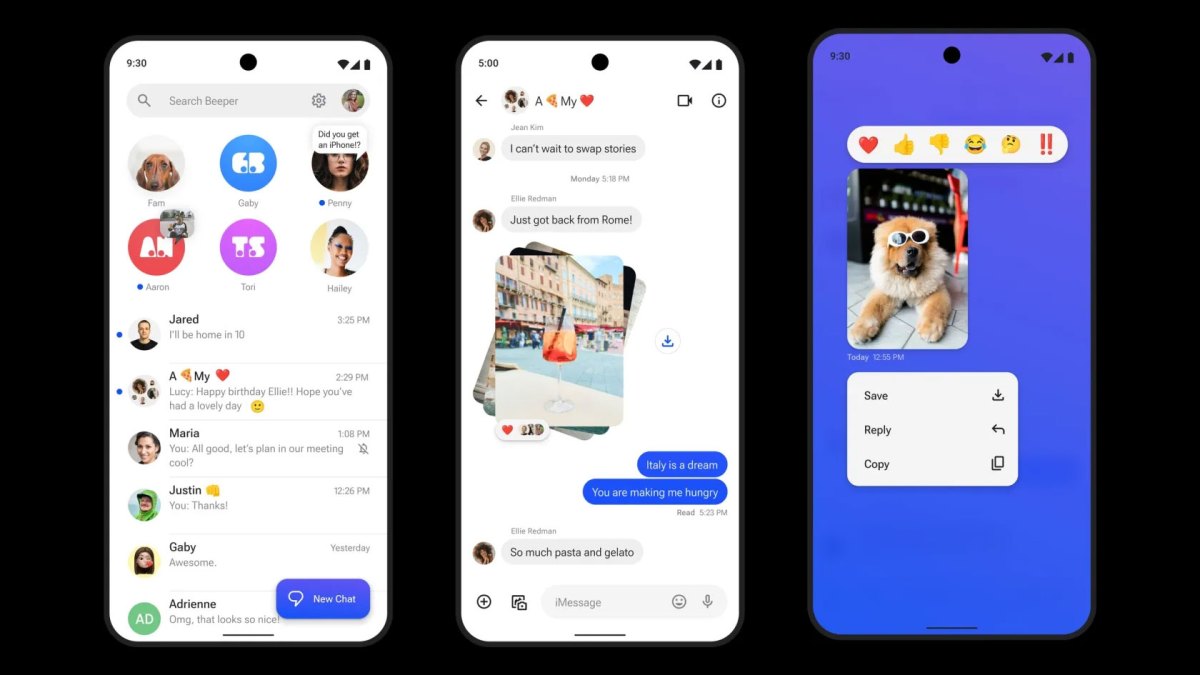The U.S. Department of Justice’s lawsuit against Apple filed on Thursday cites the iPhone maker’s battle in opposition to Beeper, the app that aimed to ship iMessage to Android clients. Beeper gave up on its mission after Apple blocked the app’s efforts late ultimate 12 months. The DOJ referenced the dispute in its lawsuit for example of Apple controlling “the conduct and innovation of third occasions as a method to insulate itself from opponents.”
Beeper, a startup from Pebble smartwatch founder Eric Migicovsky, managed to reverse-engineer the iMessage protocol to ship help for end-to-end encrypted blue bubble iMessage chats to Android clients. Beeper functioned as an actual iMessage client, supporting threads, replies, be taught receipts, direct messages and group chats, tapback emoji reactions, enhancing and additional.
As rapidly as Beeper launched, the companies entered proper right into a recreation of cat-and-mouse, which Apple ultimately gained. Each time Beeper issued workarounds and fixes to keep up the service afloat, Apple knocked them down one by one. The dispute led to a bipartisan group of U.S. lawmakers asking the DOJ to analysis Apple’s anticompetitive treatment of the app.
“These days, Apple blocked a third-party developer from fixing the broken cross-platform messaging experience in Apple Messages and providing end-to-end encryption for messages between Apple Messages and Android clients,” the DOJ grievance reads. “By rejecting choices which may allow for cross-platform encryption, Apple continues to make iPhone clients’ a lot much less secure than they may in another case be.”
On the time of the dispute, Apple argued that Beeper “posed important risks to particular person security and privateness, along with the potential for metadata publicity and enabling undesirable messages, spam, and phishing assaults.”
The battle between the two companies has moreover caught the eye of FCC commissioner Brendan Carr, who in February requested the corporate to analysis Apple’s actions by way of the lens of the FCC’s Half 14 pointers on accessibility, usability and compatibility.
The DOJ cited the battle between the two companies as part of a broader argument accusing Apple of defending its smartphone monopoly to undermine cross-platform messaging apps and rival smartphones. The division argues that Apple is “knowingly and deliberately degrading prime quality, privateness, and security for its clients.”
The lawsuit moreover accuses Apple of suppressing smartwatch cross-platform compatibility, which is one factor that Migicovsky beforehand dealt with at Pebble, a smartwatch agency that shut down in 2016. The DOJ notes that in 2013, Apple started offering clients the flexibleness to connect their iPhones with third-party smartwatches and gave third-party smartwatch builders entry to diverse APIs related to the Apple Notification Coronary heart Service, Calendar, Contacts and geolocation. When Apple launched the Apple Watch the subsequent 12 months, it began limiting third-party entry to new and improved APIs for smartwatch efficiency.
The DOJ notes that Apple prevents iPhone clients from responding to notifications using a third-party smartwatch. The division says that Apple in its place offers third-party smartwatches entry to further restricted APIs that don’t allow clients to do points which may be obtainable by itself Apple Watch, resembling responding to a message or accepting a calendar invite.
The lawsuit goes as far as accusing Apple of getting “copied the idea of a smartwatch from third-party builders.”
For further on Apple’s antitrust lawsuit, check proper right here:
